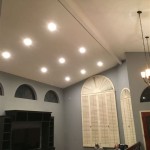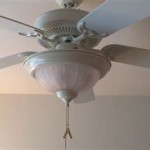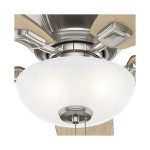Adding Can Lights In Existing Ceiling: An Essential Guide
Incorporating can lights into your existing ceiling can significantly enhance your home's ambiance and functionality. However, this seemingly simple task requires careful planning and execution. This comprehensive guide will walk you through the fundamental aspects of adding can lights to an existing ceiling, ensuring a successful and safe outcome.
Pre-Installation Considerations
Before embarking on the installation process, it's crucial to assess your existing ceiling and electrical system. Determine the location and size of the can lights, considering factors such as the room's size, desired lighting effect, and electrical capacity. If necessary, consult with a qualified electrician to ensure the electrical system can handle the additional load.
Tools and Materials
To seamlessly add can lights to your ceiling, you'll need a range of tools and materials. These include a stud finder, drill, wire strippers, electrical tape, can light fixtures, and insulation material. Ensure that all materials are compatible with your existing electrical system and building codes.
Locating Studs and Marking Locations
Utilizing a stud finder, identify the location of ceiling joists to ensure secure mounting of the can lights. Mark the precise locations where the can lights will be installed, ensuring they are adequately spaced and aligned.
Cutting Holes and Installing Boxes
Using a hole saw of the appropriate size, carefully cut holes in the ceiling at the marked locations. Insert electrical junction boxes into the holes and secure them with screws. Electrical boxes provide a safe and stable base for connecting the can lights.
Wiring and Connecting Lights
Feed the electrical wires through the junction boxes and connect them to the appropriate terminals on the can lights. Use wire strippers to expose the copper wires and secure the connections with electrical tape or wire nuts. Double-check all electrical connections for tightness and proper insulation.
Insulating and Trimming
To prevent heat buildup and ensure energy efficiency, install insulation around the can lights. Trim any excess insulation and install the trim kit or light fixture to finalize the installation. Be sure to seal any gaps between the trim and the ceiling with caulk for a clean and secure finish.
Safety Precautions
Safety is paramount when working with electricity. Ensure that the power is turned off at the main electrical panel before commencing any work. Wear appropriate safety gear such as gloves and safety glasses. If you're uncertain about any aspect of the installation, do not hesitate to consult with a licensed electrician.

How To Install Recessed Lighting Fixthisbuildthat

8 Recessed Lighting Installation Tips For Diyers Bob Vila

How To Add Can Lights Existing Ceiling Out And Guide Home Planet

How To Install Recessed Lighting Fixthisbuildthat

Installing Recessed Lighting Fine Homebuilding

Recessed Lighting In A Inium Kitchen

How To Put Recessed Lights In The Ceiling

8 Recessed Lighting Installation Tips For Diyers Bob Vila

Install Recessed Lighting

Recessed Lighting Installation Bob Vila
Related Posts







